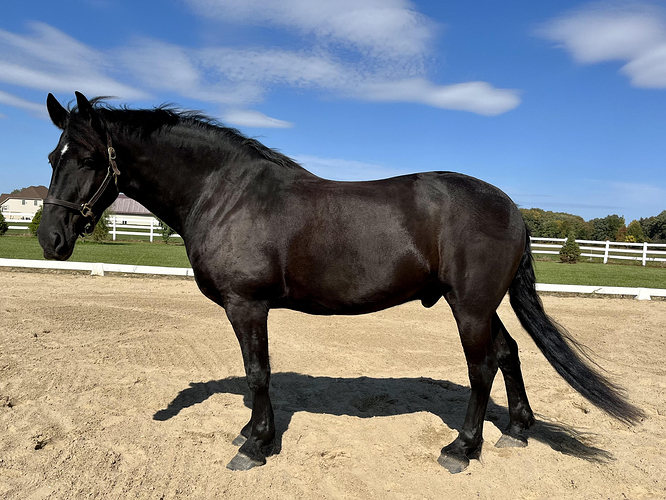I know, another Lyme thread. I just started a new job and have a second job, life is demanding. I decided to try to be preventative and list the more easy to place of my two - a draftx/friesian sport gelding for sale. About a month into the glory that is selling a horse, he starts to act weird. First, he is taking off with me in the arena, then, his stifles are locking up, then, he starts to spook at this that and the other thing. We went to a hunter pace a month ago and I ended up pulling a few ticks off of him. Unfortunately he is black so many of these I missed until well into attachment so I already had Lyme on my mind. With the stifle stuff going on I decide it was time to pull his ad. The final straw (because of course this coincides with moving barns and big changes) was that he was mean to the farrier. Nervous pooping the whole time. This horse was owned by a farrier before me and I kept him hod shod over summer so this was weird. I was hopeful we were dealing with Lyme, and sure enough we seem to be. The CSF fluid collection yielded the early stage antibodies >7000. Phewph.
We are on doxy for the next month, what I am wondering is for those of you that have dealt with this, how long into treatment did you wait before continuing riding or training? Was it just when the symptoms subsided? His have been intermittent so that would be a tough gauge for me. The spookiness would work though, this horse I had joked had “one spook in him a month, max” before he got sick, and in the last three weeks he’s been a snort machine.
Picture of my handsome boy that took it a little too far to ensure he isn’t being sold 




 ) I’ve been doing my own purposeful research (along with my vet) and while IV oxytet is preferred, when it comes to mino vs doxy, mino has at least a 2x higher oral absorption than doxy does, so is the preferred oral medication now, so that’s why doxy is falling out of favor for oral treatment
) I’ve been doing my own purposeful research (along with my vet) and while IV oxytet is preferred, when it comes to mino vs doxy, mino has at least a 2x higher oral absorption than doxy does, so is the preferred oral medication now, so that’s why doxy is falling out of favor for oral treatment